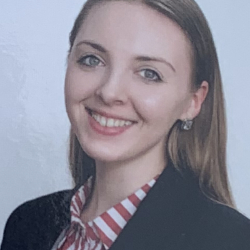
REPORTED SPEECH

«Direct speech» — это прямая речь, чьи-либо слова, которые мы передаем в виде цитаты. Прямая речь выделяется кавычками. После слов, вводящих прямую речь, ставится запятая.
Mary says, "I like English." – Мэри говорит: «Я люблю английский».
«Reported speech» — это косвенная речь, чьи-либо слова, которые мы передаем приблизительно и от третьего лица. Чтобы переделать цитату в косвенную речь, нам нужно поменять порядок слов, местоимения и иногда время (чтобы согласовать времена).
Mary says that she likes English. – Мэри говорит, что любит английский.

ТАБЛИЦА СОГЛАСОВАНИЯ ВРЕМЕН

изменение указателей времени и места
Direct speech (Прямая речь)
this (этот)
Indirect speech (Косвенная речь)
these (эти)
that (тот, этот)
those (те, эти)
now (сейчас)
then (тогда)
today (сегодня)
that day (в тот день)
tomorrow (завтра)
the day after tomorrow (послезавтра)
the next day (на следующий день)
yesterday (вчера)
two days later (через два дня, два дня спустя)
the day before (накануне)
the day before yesterday (позавчера)
two days before (за два дня до этого, двумя днями раньше)
ago (тому назад)
before (раньше)
next year (в следующем году)
the next year, the following year (в следующем году)
here (здесь)
there (там)

INDIRECT QUESTIONS
Если вопрос в прямой речи начинается с вопросительного слова (what, who, where, when, how, why, whom) в косвенном вопросе употребляется то же вопросительное слово.
«Where are you from?» she asked me. «Откуда ты?» она спросила меня. (прямой вопрос).
She asked where I was from. Она спросила, откуда я. (косвенный вопрос).
Если прямой вопрос начинается со вспомогательного глагола или модальных глаголов, то косвенный вопрос вводятся при помощи if (если) или whether (ли, который).
He asked «Do you want a ride to gym?». Он спросил: «Тебя подвести в спортзал?». (прямой вопрос).
He wanted to know if/whether I wanted a ride to gym. Он хотел знать, хочу ли я, чтобы меня подвезли в спортзал. (косвенный вопрос).

inderect speech
direct speech
Прямая речь
Косвенная речь
Present Simple меняется на Past Simple
Lisa says: “I walk to school”
Present Continuous меняется на Past Continuous
Lisa said: “I am watching TV”
Lisa says that she walked to school
Present Perfect меняется на Past Perfect
Present Perfect Continuous меняется на Past Perfect Continuous
Lisa said: “I have visited Moscow”
Lisa said that she was watching TV
Lisa said: “I have been sleeping ”
Lisa said that she had visited Moscow
Past Simple меняется на Past Perfect
Lisa said: “I met John”
Future Simple меняется на Future-in-the-Past
Lisa said that she had been sleeping
Lisa said: “I will do that”
Lisa said that she had met John
Lisa said that she would do that.

reported questions
direct
The police officer said to us, ‘Where are you going ?’
reported
The police officer asked us where we were going .
direct
Clare said, ‘What time do the banks close ?’
reported
Clare wanted to know what time the banks closed .
direct
Do you have a driving licence?
reported
She asked if ( or whether) I had a driving licence.
direct
Can you speak any foreign languages?
reported
She wanted to know if ( or whether) I could speak any foreign languages.

Change the direct speech into reported speech.
“ I am planning to go to Kenya,” Sally said.
“ I take my little sister to school every day,” little Anthony said.
“ You may take my textbook,” Nonna said.
“ They are playing in the gym now,” Nick said.
“ I don’t like chocolate,” Mary said.
“ My sister is ready to go” Helen said.
“ My mother usually goes shopping on Saturday,” the girl said.
“ The birds build their nests among the trees,” the teacher said.
“ I am not married,” Jimmy said.
“ I can't read these books. I don’t like them,” Petra said.

Rewrite the sentences using “he asked”.
1) “Can you drive a car?”
2) “What did you do yesterday?”
3) “Which countries have you visited?”
4) “Will she come with us?”
5) “How often do you help people?”
6) “Who did you meet on a plane?”
7) “Why is she going to move?”


























